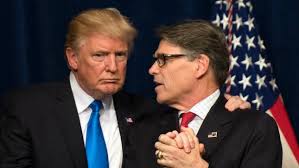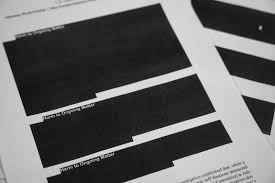
Those hoping to find some sort of a smoking gun in Rick Perry’s documents from his former position as U.S. Energy Secretary didn’t find one this week.
As POLITICO’s Morning Energy Report stated, an Energy Department release of documents relating to Rick Perry’s interactions with government officials in Ukraine didn’t turn up much of interest, but the most interesting parts may have been left out.
Watchdog group American Oversight filed a Freedom of Information Act request for documents related to Perry’s May 2019 trip to Ukraine as well as emails mentioning a number of figures in the ongoing impeachment scandal, including to Rudy Giuliani, Hunter Biden, Lev Parnas and others.

DOE said it found five relevant documents, but four of those were sent to the State Department instead of being released, DOE said in its response to American Oversight. “We’re entitled to these records from the Department of Energy through this FOIA lawsuit, and we will be following up with the government in the coming days on this and other questions,” American Oversight spokesman Clark Pettig told ME.
Perry talking points: About a third of the pages in the DOE release were redacted, and a significant number of other pages consisted of official biographies of the government officials attending the meetings. What DOE did release included Perry’s talking points to Ukrainian officials he met during trips in 2019. These included promoting U.S. LNG, scolding the Ukrainians to have state-owned natural gas company Naftogaz divest its distribution system, and reiterated U.S. opposition to Russian natural gas pipelines. Perry also said the U.S. “would like to work with Ukraine to ensure the tendering process” for oil and gas leases “is transparent and competitive, and in line with the recommendations of the business community.” The former Energy secretary would face criticism that an American company owned by two of his political backers won a potentially lucrative Ukrainian oil and gas lease despite being outbid by a competing company.
Source: POLITICO





